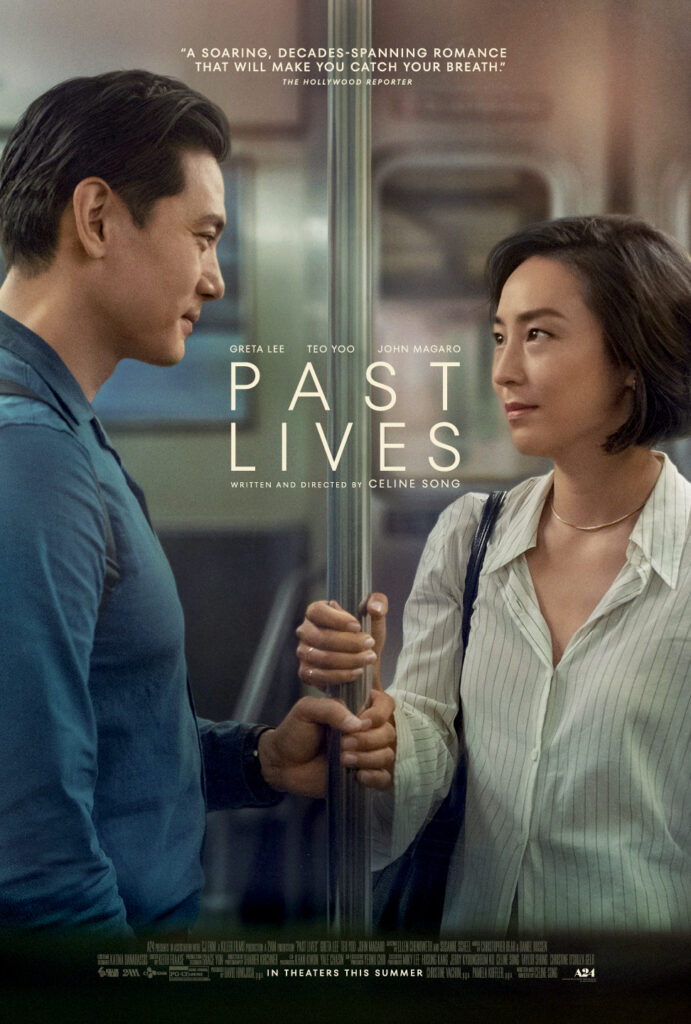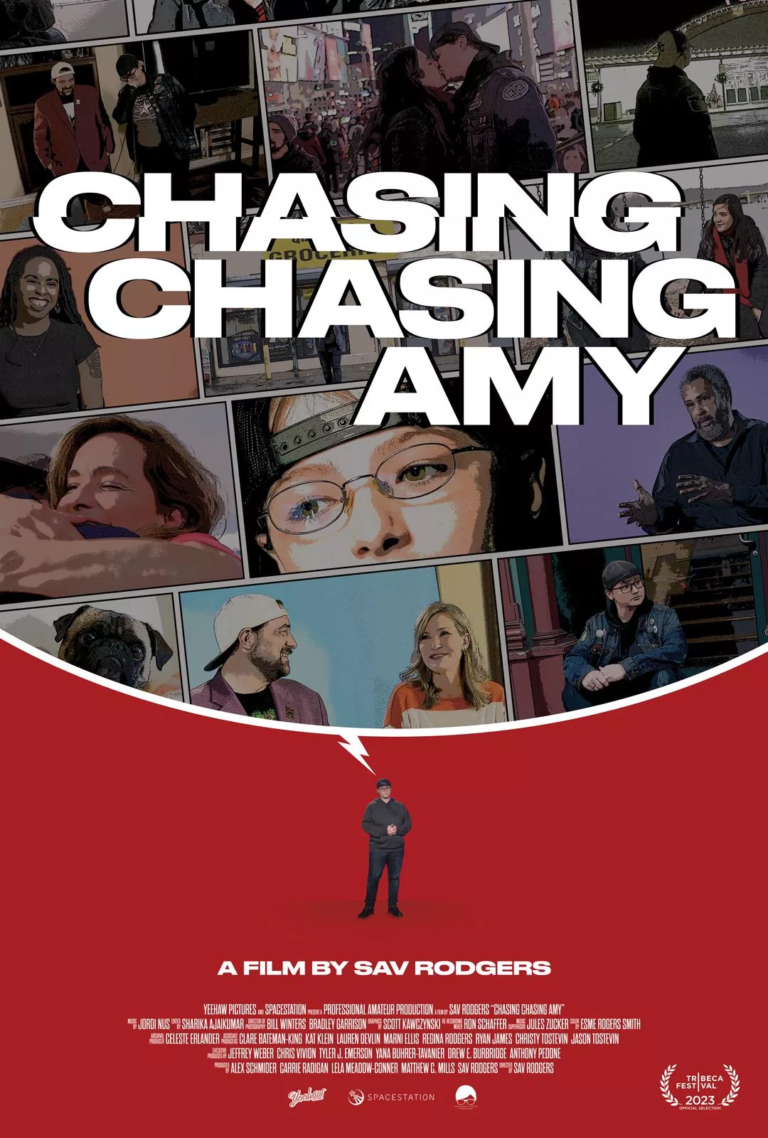Past Lives Christian Review

There’s a distinct kind of story that sneaks up on you — the kind that doesn’t just tell you about life, but makes you feel it reverberating in your bones. Past Lives is one of those films. It’s not flashy or dramatic; it doesn’t offer easy resolutions or grand gestures. What it does is far more intricate, like a soft breeze carrying the scent of somewhere familiar yet unreachable. It’s a whisper of a movie, yet it lingers longer than a shout, leaving you awash in its subtle, melancholic beauty. Watching it, you get the sense that you’re not just an audience, but a quiet participant in an ongoing conversation about love, identity, and destiny.
More Than a Love Triangle: The Heart at the Center
It’s easy to label Past Lives a love story or a drama about a romantic triangle — three people caught in a dance of history, affection, and possibility. But those labels don’t quite capture the film’s essence. This isn’t about who ends up with whom or which lover is left behind. Rather, it’s about what love really is, and the many forms it takes when filtered through time and circumstance. At its core are Nora, a Korean woman who immigrated to the United States as a child; Hae Sung, her childhood friend left behind in Seoul; and Arthur, Nora’s American husband who is caught up in the strange, half-familiar story of these two souls reuniting.
Yet, this isn’t a tale of competing loves or spurned desires. Instead, it’s a meditation on what it means to love someone in different ways and at different stages in life. It’s a story about the paths we take and the ones we leave unexplored. And it’s about the unspoken tension of seeing what might have been, while accepting what is. To say that Past Lives “avoids cliché” would be an understatement — it makes a point to sidestep the melodrama entirely, opting instead for something quieter, something that hums with unsaid truths.
The Roads We Take — And The Ones We Leave Behind
Nora’s story is one of movement. As a young girl, she leaves Seoul with her family, drawn by the promise of a new life in America. But even as she grows into her new identity as a New Yorker, the shadow of her past remains. Hae Sung, left behind in South Korea, symbolizes all the “what ifs” that follow her. What if she had stayed? What if he had been able to come with her? What if life, that tricky, unpredictable force, hadn’t swept them so far apart?
When Hae Sung shows up years later, he isn’t a lost love looking to rekindle a flame. He’s something else — a reminder of a self that Nora has almost forgotten. Their reunion is tinged with a bittersweetness that’s hard to put into words. Watching them together, you get the sense that they’re not really speaking to each other as they are now, but to the children they once were, to the memories they’ve kept buried under the weight of years. It’s more than nostalgia. It’s like two sides of a mirror, finally coming face to face.
For those of us who have left pieces of ourselves behind in other places, other times, the feeling is painfully relatable. We all have versions of ourselves that exist only in memory — a younger self, a braver self, a more hopeful self. When those memories are awakened, it can feel like a reunion and a loss all at once. Because no matter how deeply connected we are to those past lives, we can never fully step back into them. They’re gone, not lost, but transformed by time.
The Grace of Letting Go
For Christians, the notion of holding onto the past can be a complex one. The Bible talks about looking forward, pressing onward toward the goal (Philippians 3:13-14). But Past Lives challenges us to ask: is it wrong to look back, to wonder, even to grieve what might have been? Watching Nora navigate her relationships with Hae Sung and Arthur, it’s clear that she’s not choosing between two men. She’s choosing between two selves — the one shaped by the world she left and the one she has painstakingly built in the years since.
Arthur, Nora’s husband, is perhaps the film’s most surprising character. He could easily have been rendered as a jealous third wheel, threatened by Hae Sung’s presence. But he’s not. Instead, he embodies a kind of sacrificial love that is almost Christ-like in its patience and grace. He sees that Nora’s connection with Hae Sung isn’t a threat to their marriage; it’s a part of who she is. Rather than demanding she sever that tie, he steps back and lets her have space to reconcile her past with her present. His love for her is selfless, not possessive.
And in doing so, Arthur models a kind of love that is both rare and deeply biblical. It’s a love that doesn’t seek its own way but rejoices in the truth, even when the truth is complicated and painful (1 Corinthians 13:4-7). It’s a love that releases rather than clutches — a love that understands sometimes the most loving thing we can do is to let someone be fully themselves, even if that means embracing a past we’ll never fully understand.
What Does It Mean to Love?
There’s a moment in the film where Nora and Hae Sung sit beside each other, looking out at the New York City skyline. They don’t say much, but the silence is charged. It’s as if they’re asking the city, the stars, maybe even God Himself: What are we to each other? What would we have been if things had been different? And does it even matter now?
For a Christian viewer, these questions are haunting. Love, as Scripture tells us, is not merely a feeling or a fleeting desire. It’s an act of will, a commitment, a covenant. But Past Lives asks: what about the loves that never had the chance to become more than dreams? Are they less real? Less worthy? Or are they simply a different kind of love — no less true, but bound by the limits of time and space?
The film doesn’t offer easy answers. Instead, it leaves us with a gentle reminder that love, like life itself, is complex and often paradoxical. Sometimes, we are called to hold on. Sometimes, we are called to let go. And sometimes, as in the case of Nora and Hae Sung, we are called to simply sit with the tension, to accept the beauty of what was and what is, without demanding that they reconcile.
Final Thoughts: A Gentle, Haunting Masterpiece
In a world obsessed with happy endings and neatly tied bows, Past Lives stands out for its willingness to embrace ambiguity. It doesn’t offer a resolution, because life itself rarely does. Instead, it gives us a glimpse into the beauty of the unresolved, the grace of unanswered questions. It’s a film that asks us to look at our own past lives — the people we were, the choices we made — and to bless them, even as we move forward.
For that, I give Past Lives a 9 out of 10. It’s a rare gem of a movie, one that doesn’t just show us what love looks like, but what it feels like in all its messy, beautiful glory. It’s a story that invites us to sit, to listen, and to leave a little changed — a true work of art.




